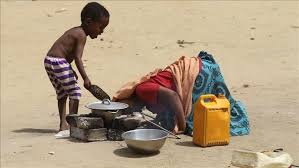Rwanda has initiated clinical trials for vaccines and therapies aimed at combatting this highly infectious disease. Assistant Health Minister Yvan Butera announced the trials, highlighting the government’s commitment to controlling the spread of the virus and protecting the health of its citizens.
The Marburg virus, which belongs to the same family as Ebola, is known for its severe and often fatal symptoms, including intense headaches, vomiting, and muscle pain. With a staggering fatality rate that can reach up to 88%, the urgency of addressing this outbreak is evident. As of now, the Rwandan government has reported 36 confirmed cases, raising concerns about public health and safety.
To mitigate the spread of the virus, authorities are closely monitoring 410 individuals who have had contact with confirmed cases. This strategy aims to isolate potential cases and curb any further transmission of the virus. In addition to the confirmed cases, five other suspected cases have tested negative, though results from further testing are still pending.
The Marburg virus was first identified in 1967 during an outbreak in Germany, associated with infected monkeys used for research. Since then, it has emerged in various African countries, including Uganda in 2017 and more recently in Tanzania and Equatorial Guinea in 2023. The disease is primarily transmitted to humans through fruit bats, and once contracted, it can spread rapidly from person to person through contact with bodily fluids.
Butera emphasized the importance of immediate action, stating, “We are embarking on trials of vaccines and clinical therapies for those already sick with the viral hemorrhagic disease.” He also indicated that the trials would focus on protecting high-risk groups but did not disclose specific details about the drugs being tested.
The clinical trials mark a significant step in Rwanda’s efforts to address the Marburg outbreak effectively. As part of these efforts, health officials are implementing stringent monitoring measures and isolation protocols to ensure the safety of those who may have been exposed to the virus. This comprehensive approach reflects the government’s determination to safeguard public health and prevent the further spread of the disease.
The Rwandan Health Ministry is working diligently to provide timely updates and support to communities affected by the outbreak. Public awareness campaigns are being rolled out to educate citizens on the symptoms of the Marburg virus and the importance of seeking immediate medical attention if they experience any related signs.
As the clinical trials progress, Rwanda’s healthcare system is on high alert, and the government is collaborating with international health organizations to bolster its response efforts. This collaboration aims to ensure that the trials are conducted with the highest standards of safety and efficacy, with the ultimate goal of finding effective treatments and preventive measures against the Marburg virus.
In conclusion, Rwanda’s decisive action in launching vaccine and therapy trials reflects its commitment to combating the Marburg virus and protecting the health of its population. With ongoing monitoring, community education, and international collaboration, Rwanda aims to navigate this outbreak and emerge stronger in its fight against viral diseases. As the nation rallies together in this effort, the hope remains that through science and vigilance, the threat of the Marburg virus can be contained and ultimately eliminated.














Leave a comment